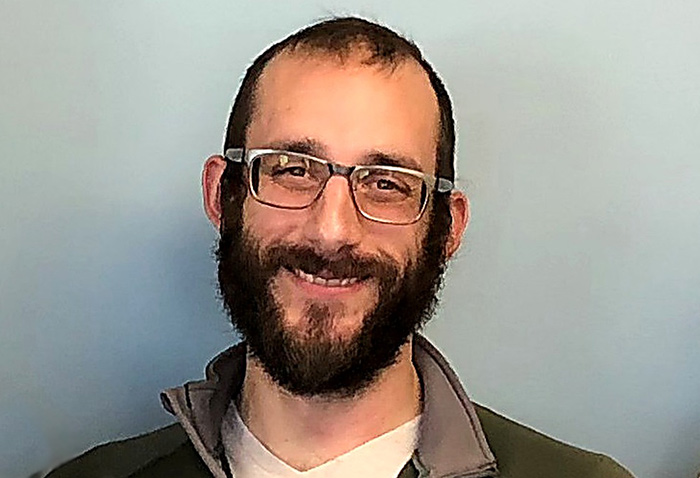Join the campaign to expand service to others
INTERFAITHFULLY SPEAKING
by Rev. Pratima Dharm, Monte Vista Unitarian Universalist Congregation in Montclair
The different religious traditions of the world call us to the practice of spiritual disciplines like fasting, silence, solitude, abstaining from things in the physical world, or service to the marginalized in order to move closer to our connection with the holy or the sacred, God or simply connecting with our own spiritual selves or spirituality.
Though it is very apt for many to take on the various spiritual disciplines, service to the marginalized is what speaks to me the most. Engaging in service to others in need helps me get in touch with God, my own sacredness and the sacredness of others. When we pay close attention, there is much that needs to be done in our own communities.
With the abundance of food and resources in our lives, we do have a responsibility toward those who have very little and go hungry daily. With the rise of homelessness, our responsibility to feed and serve those who are poor, marginalized and hungry, without expectation or blame, also increases.
So, as a community of faith or as individuals, what are we doing for those who are poor? How are we engaging in this great need of our time to feed, clothe and restore the lives of those who seek to rebuild their home, hearth and family just like anyone else in America?
Most importantly we have to change the old narrative that the poor are to be blamed for their plight and that they have somehow caused hunger and material starvation in their lives.
The truth is that in a land of such material abundance it is the systems of oppression that needs to be questioned which continue to cause (even today) nearly 140 million people to live in poverty with bare minimum housing, practically zero availability or access to proper health care, clean drinking water and so on.
Martin Luther King began a moral movement for the poor in the late-1960s and called for a march into Washington DC. The Poor People’s Campaign, or Poor People’s March on Washington, was a 1968 effort to gain economic justice for poor people in the United States.
Rev. King and the Southern Christian Leadership Conference (SCLC) organized this effort, which was led by Ralph Abernathy after Rev. King was assassinated, demanding economic and human rights for poor Americans of diverse backgrounds to our Congress and other executive agencies. A group of 3,000 protestors set up camp on the Washington Mall, where they stayed for six weeks in the spring of 1968.
The Poor People’s Campaign was motivated by a desire for economic justice and the right of all people to live with human dignity, where basic living needs were met.
Though the Civil Rights movement had been successful in bringing awareness and changing the laws to protect African Americans and people of color against racism, Rev. King and the SCLC realized that the movement failed to improve the material conditions for many African Americans. And so, Rev. King’s vision for the Poor People’s Campaign became a multiracial effort to include African Americans, white Americans, Asian Americans, Hispanic Americans and Native Americans. The campaign aimed at alleviating poverty regardless of race.
Sadly, despite the mass efforts of the sixties and the subsequent growth in our economy, it has not helped to alleviate the conditions of the poor in present times, irrespective of race. In fact, we see an increase in the number of poor people. And despite the false narrative, the majority of those living in poverty are actually the working poor. Today, Rev. William J. Barber, the leader of the present Poor People’s Campaign, is bringing our attention to work that remains to be done by reviving the moral call to respond to improving conditions for the poor.
The Poor People’s Campaign has fought against voter suppression, living wages, denial of healthcare, discriminatory laws against the LGBTQ community and Latinos, and other issues that primarily impact the lives of millions of poor people.
As the campaign expands efforts in Southern California, it held its town hall meeting in the spring this year at Monte Vista Unitarian Universalist Congregation. I was happy to see the support among the leadership and the Social Justice Committee at Monte Vista for this town hall.
I am also heartened to share that, inspired by the Poor People’s Campaign, the CommUUnity Homeless Action Outreach (affectionately called the CHAO Hounds) was launched in January under the “Spirit of Service” program at Monte Vista UU Congregation in Montclair.
Under this program, we began providing meals to the Hope Partners shelter for homeless families and the new Hope for Home shelter in Pomona for 225 people each month. We have possibilities of providing meals and other outreach work including organizing a collection of clothing, items of daily living, arts and crafts for a larger group of homeless people at other shelters in Pomona, Montclair and Upland.
May the intentions of our hearts and the service of our hands be a blessing unto those whose lives are broken and rejected but can be made whole again. May we be inspired to make a difference by being people who choose to do something about the most pressing need of our time.









0 Comments